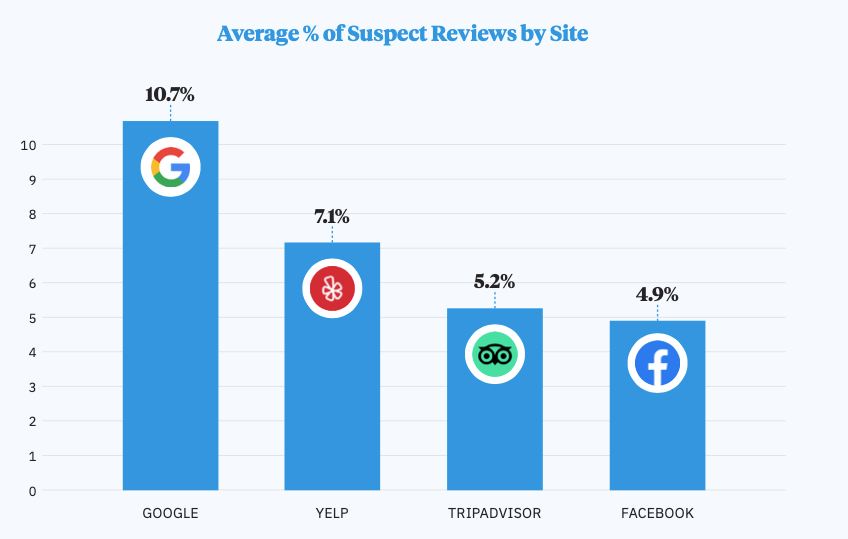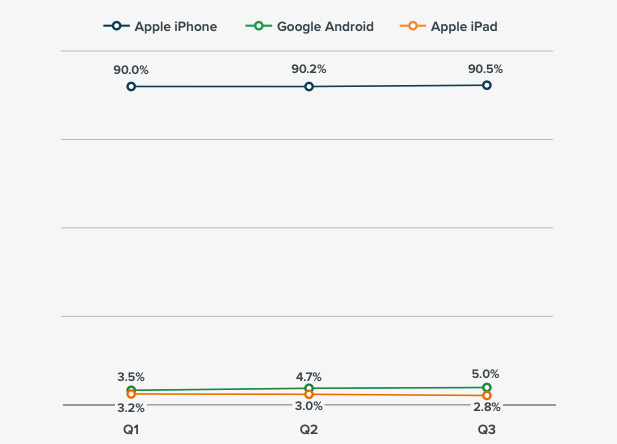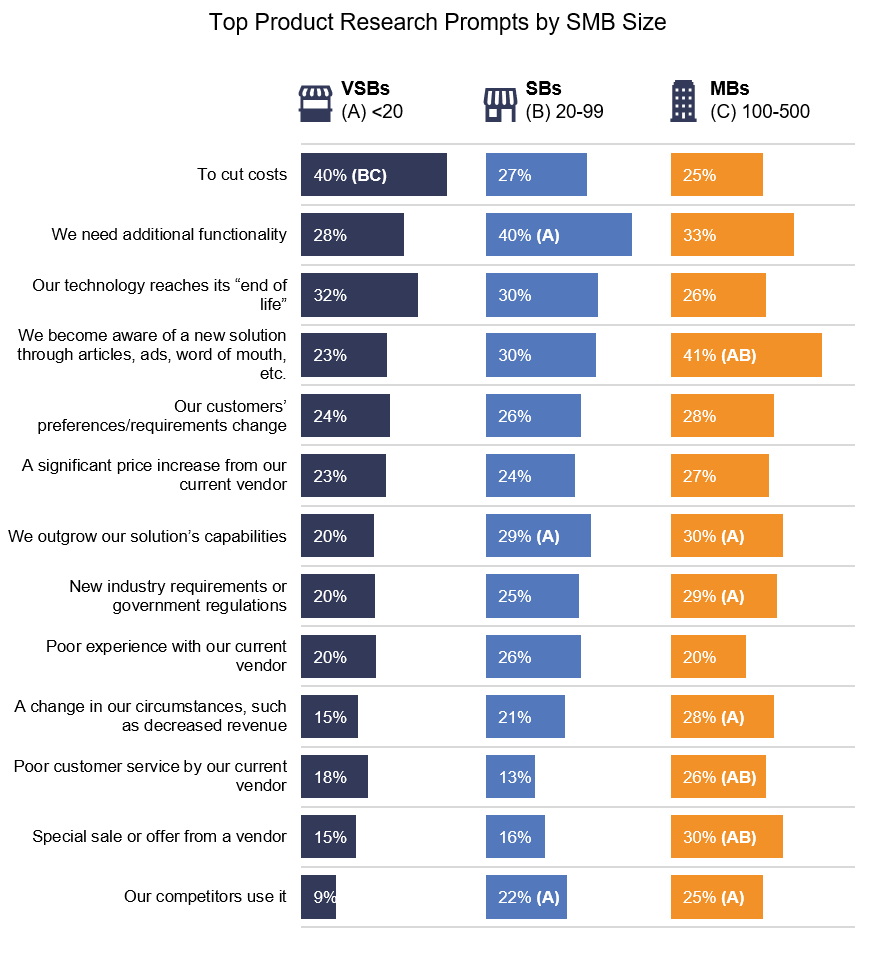FTC Review Strategy, SMB Buying Triggers, Email Attention Declines

FTC's Emerging Review Fraud Strategy
In October, the FTC notified major US brands that "misleading use of endorsements could lead to major financial penalties." Reviews, according to the FTC, are a subcategory of endorsements. The agency has been formulating a strategy to go after rampant review fraud online. The challenge is Section 230, which protects big review platforms from liability. So the FTC is contemplating going after individual US-based companies generating or paying for fake reviews, according to a transcript of a conversation between FTC representatives and The Transparency Company, which worked on a Fake Reviews report with me. But suing thousands of cheating SMBs isn't practical. So the FTC is looking for larger digital agencies or businesses that could become higher-profile examples.

Our take:
- We may start to see individual business actions (see Sunday Riley). To be effective, financial penalties are required – not just wrist slapping.
- Each potential "misleading endorsement" (fake review) could result in penalties of $43K. However, that remains hypothetical for now.
- Section 230 is the major obstacle to truly policing fake reviews. As long as the big platforms are immune, they will continue with lax enforcement.
Email: All You Get Is 10 Seconds
Nearly 84% of email is opened on mobile devices, with the iPhone leading the way. According to a recent report (lead form) Litmus, the top email clients are "Apple iPhone (iOS Mail), Gmail, and Apple Mail (macOS Mail)." The top web-based email platforms are Gmail (86%), Yahoo (11%) and Outlook (3%). Overall, 53% of all email is opened by an Apple user with an Apple client. Many Gmail users are also on Macs and iOS devices as well. This is why Apple's Hide My Email could have a meaningful impact on email marketing visibility, though that remains to be seen. According to the report, "average time spent reading an email is down by around 15% from last year" to roughly 10 seconds, from a high of 13.4 in 2018.

Our take:
- Email marketing has always been effective but has taken on increased or renewed importance in the post-cookie, first-party data world.
- More email volume means more in-box clutter and less attention from consumers. So best practices are even more important.
- Here's where machine learning and large datasets (e.g., Mailchimp Content Optimizer) can make a real difference for SMBs and enterprises.
Size Matters: SMB SaaS Buying Triggers
New survey data from Bredin reveals what motivates small business technology (SaaS) buyers. The survey polled "over 800 SMBs in the U.S., U.K., Canada, Australia and New Zealand" (small samples by country). But Bredin says results are similar across countries and mostly driven by firm size. The question was, "What prompts your company to start investigating a new product or service for your business?" Firms were classified by headcount: under 20, 20-99, 100-500. For the smallest firms, SMBs are primarily driven by cost savings. Medium-sized SMBs are motivated buy a recognition of the need for "additional functionality." Larger firms are typically "motivated [by] external factors ... MBs are more responsive than their smaller peers to your marketing activities."

Our take:
- The findings hold clear go-to-market, marketing and messaging implications.
- For smaller SMBs (under 100 headcount) they'll start looking when they have an "internal" need -- for better pricing or new capabilities (e.g., mobile payments).
- Ironically, the research suggests the largest, and presumably most sophisticated, firms, are the most susceptible to marketing messages.
Recent Analysis
- Google’s New Business Profile: When Search Becomes a Political Tool, by Mike Blumenthal.
- Near Memo episode 40: Google My Business Rebrand – A chance to fix GMB or an opportunity to nuke part of the stack?
Short Takes
- Google Maps has more than 10B Android installs (but only a 3.9 rating).
- New Senate bill seeks to prevent big tech from buying smaller rivals.
- Google's Pixel 6 "butt dialing" user contacts at random.
- Treasury Dept. using smartphone data for investigations.
- Netflix documentaries make it a frequent defamation defendant.
- New infrastructure law will impact broadband, EVs, autonomous cars.
- SMB design and digital platform VistaPrint rebrands as Vista.
- Wayfair the latest to launch live shopping/commerce.
- Apple, Google, MSFT: Who will be the first $3T market cap company?
- Google giving more visibility to local in-stock product availability.
- Investor argues: "Let’s not forget the real good" Facebook has done.
- Walmart looking to autonomous vehicles for grocery delivery efficiency.
- FTC also to crack down on "dark [subscription renewal] patterns."
Listen to our latest podcast.

How can we make this better? Email us with suggestions and recommendations.

